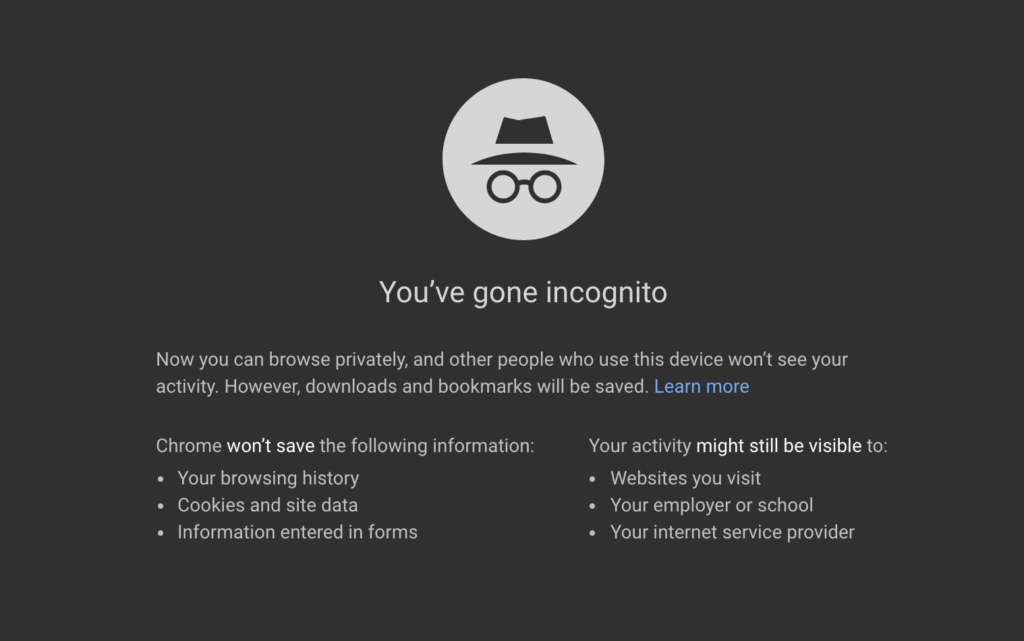A Google developer has revealed that even if you’re using Incognito mode on Google Chrome, it is still possible to track your activity. David Fisher dropped this bombshell recently:
“When you open a tab in Incognito mode, a warning appears in which we try to help you understand that your activity will be visible to the company in which you work, to your educational center and to the service offered by the Internet.”

This might be important intel for those who use Incognito mode to visit adult entertainment pages. The problem is that it only works at home or when you use a private internet connection. When you use an open connection (such as your company’s), you are exposed… so to speak.
That does not mean that if you look at certain pages from your company’s computer, your boss will get an alarm warning you of your misdeeds. What is possible is that if your boss decides to analyze, for example, the ads you have seen while browsing the internet or the resources used, they could easily deduce the pages you’ve been visiting.
Google is right in regard to its warnings. It’s the first thing you see:

However, many people do not read it carefully and as a result, they receive some rather unpleasant surprises.
Fisher recommends using Incognito mode to avoid cookies (so that web pages can’t “spy” on you), to hide activities from other people who use your PC (for example, if you’re trying to buy somebody a gift) or to protect yourself from web pages of a suspicious nature.
This isn’t the first time we’ve reminded you about the fact that Incognito mode doesn’t guarantee 100% anonymity, but there is no harm in repeating useful information.
Via: The Independent

